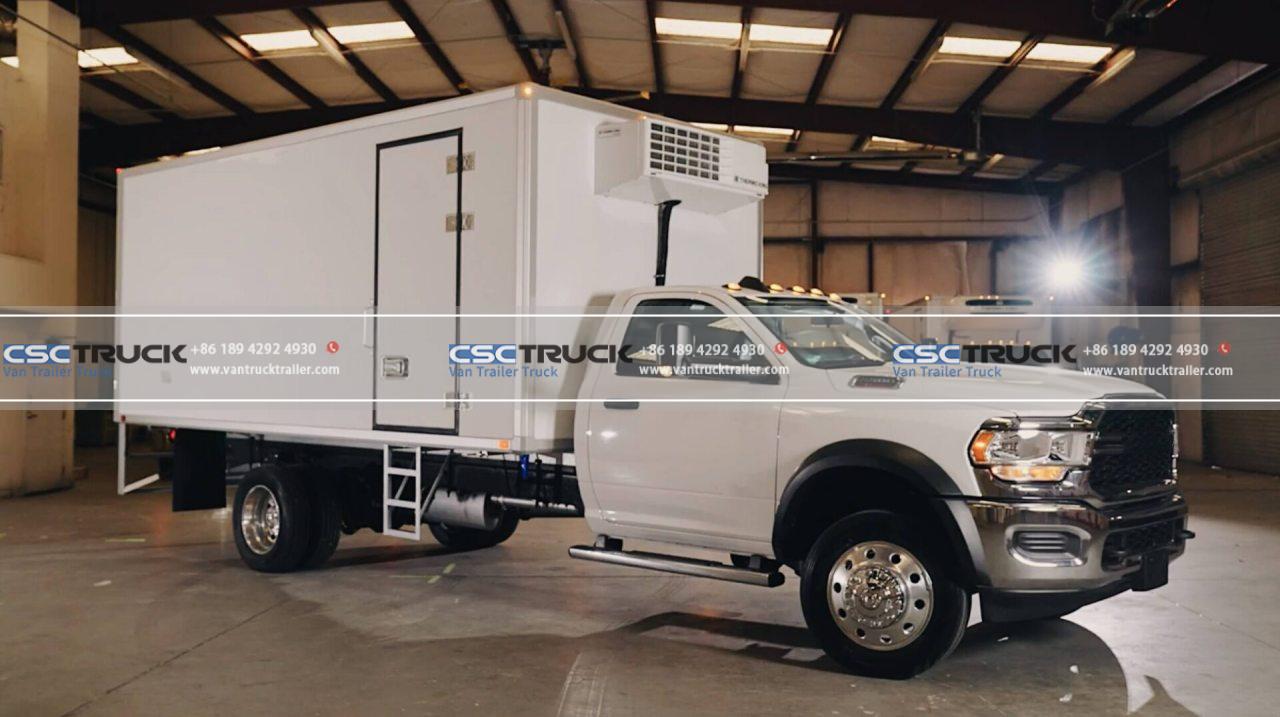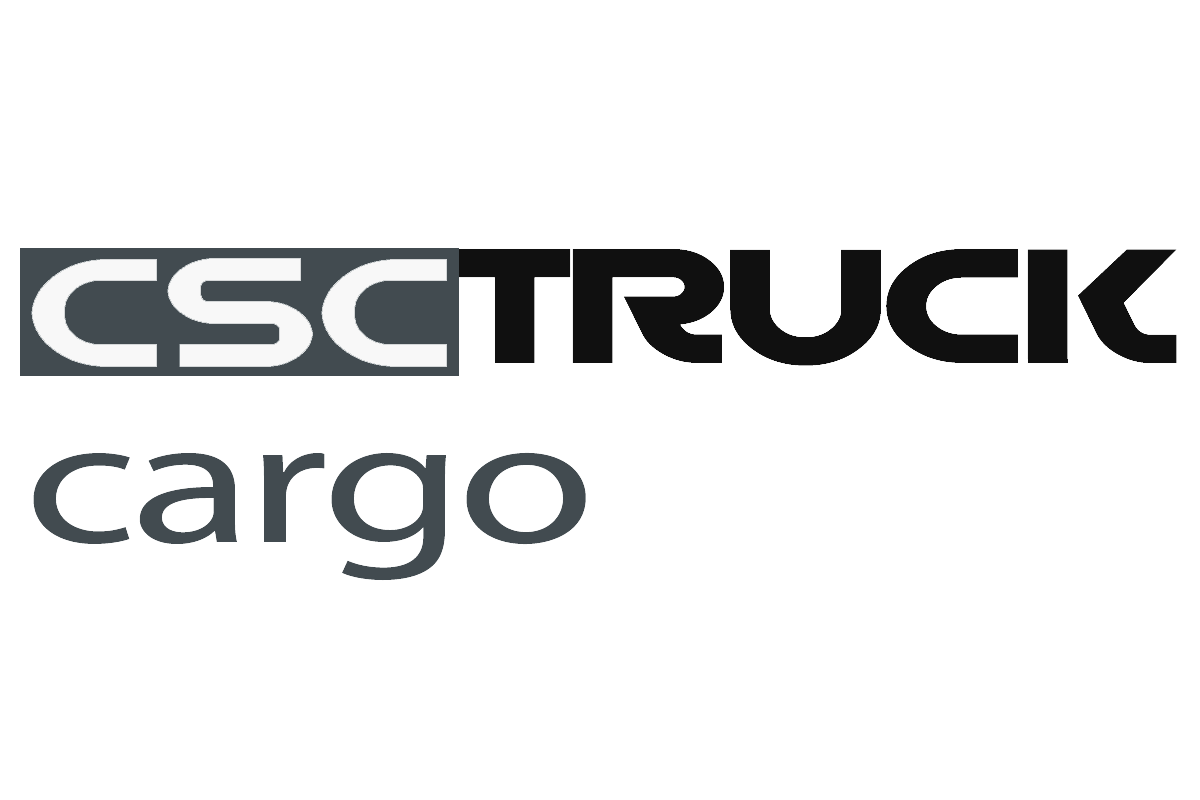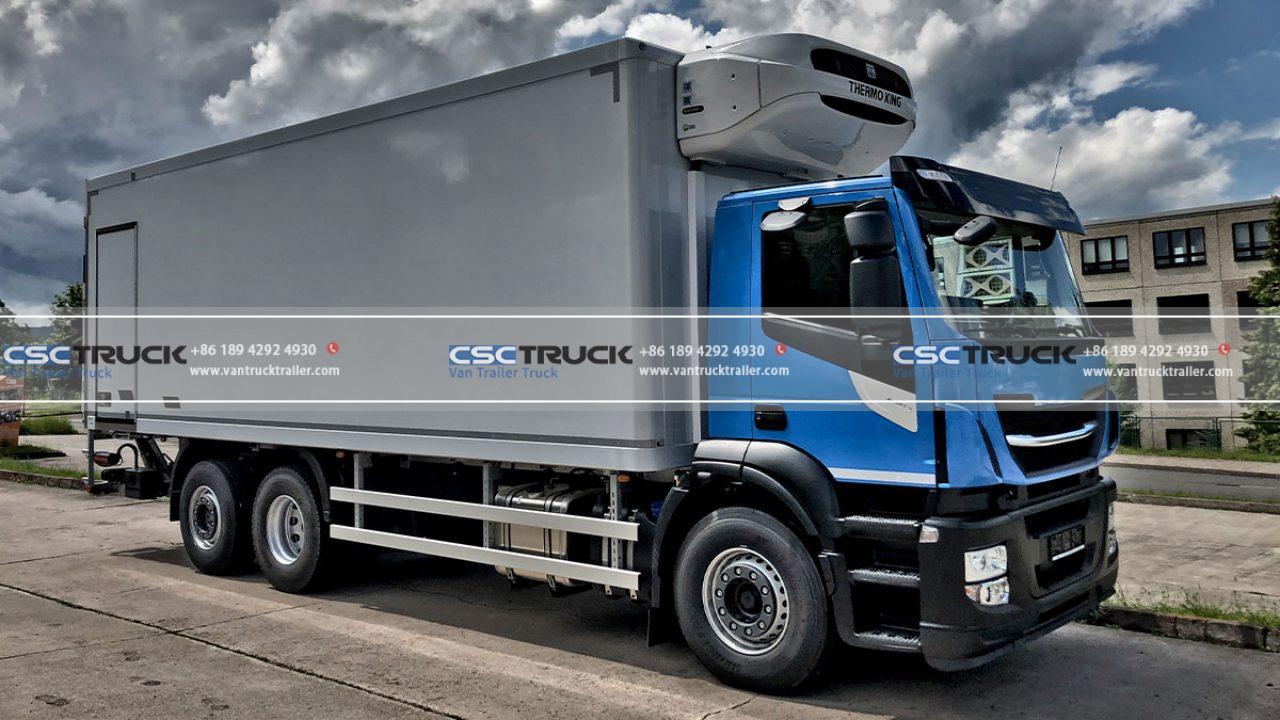Perishable goods are a vital part of our global economy. They make up a significant portion of the food we eat, the medicines we take, and the chemicals we use. But perishable goods are also incredibly sensitive to temperature. If they are not stored or transported properly, they can spoil or degrade, making them unsafe or ineffective.
This is where cold chain logistics comes in. Cold chain logistics is the process of ensuring that perishable goods are kept at a safe and consistent temperature throughout their journey from the manufacturer to the end consumer. This includes everything from the packaging and storage of the goods to transportation and delivery.
Refrigerated trucks play a critical role in cold chain logistics. They are used to transport perishable goods over long distances, ensuring that they arrive at their destination in good condition. But not all refrigerated trucks are created equal. There are several factors to consider when choosing a refrigerated truck for your cold chain logistics needs.
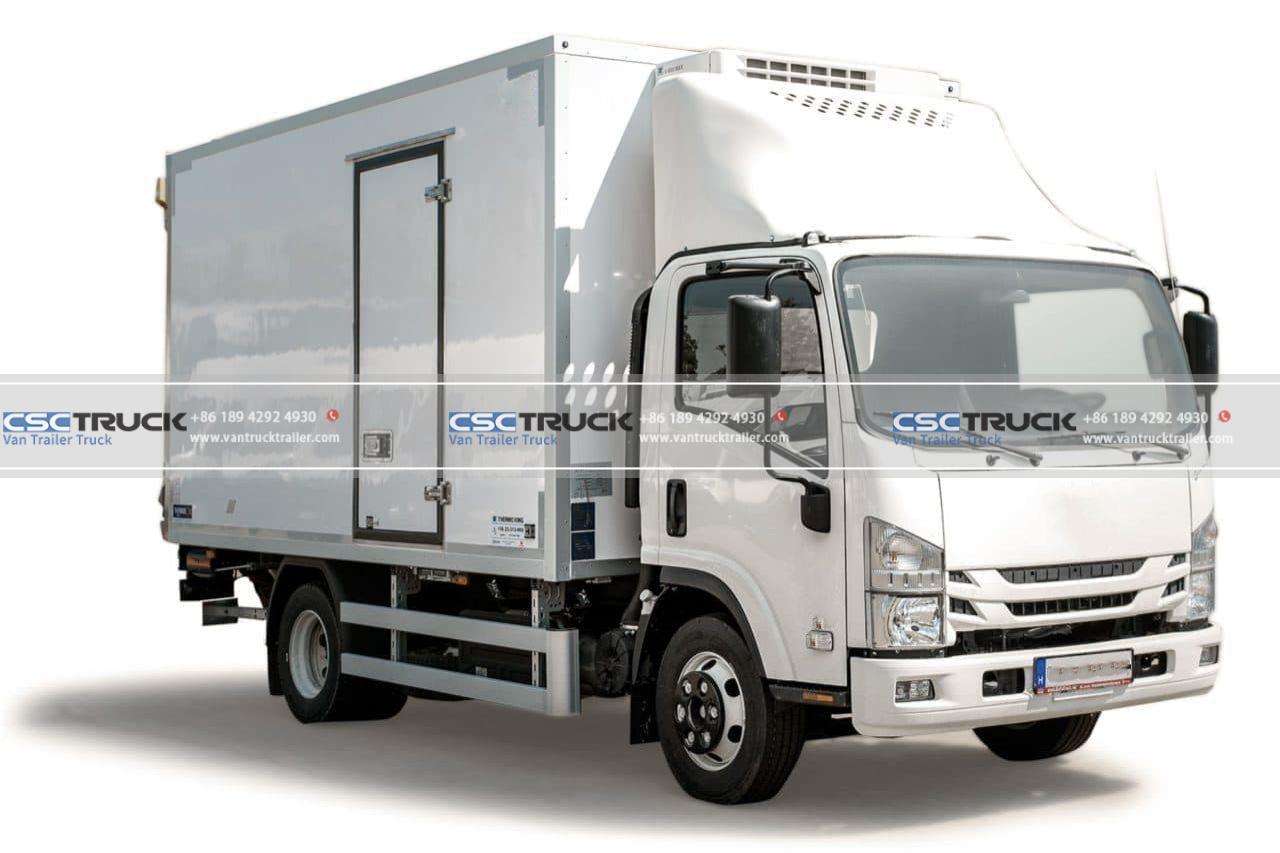
In this article, we will discuss the different types of refrigerated trucks, the factors to consider when choosing a refrigerated truck, and the best practices for cold chain logistics.
Types of Refrigerated Trucks
There are two main types of refrigerated trucks: walk-in trucks and reefer trucks.
- Walk-in trucks are large trucks that have walk-in doors. They are typically used to transport large quantities of perishable goods, such as fresh produce or meat.
- Reefer trucks are smaller trucks that have a refrigerated compartment. They are typically used to transport smaller quantities of perishable goods, such as pharmaceuticals or chemicals.
Within these two main types, there are several different variations of refrigerated trucks. For example, some refrigerated trucks have a separate freezer compartment, while others have a controlled atmosphere that is designed to preserve the freshness of perishable goods.
Factors to Consider When Choosing a Refrigerated Truck
There are several factors to consider when choosing a refrigerated truck for your cold chain logistics needs. These include:
- The type of goods you will be transporting
- The distance you will be transporting the goods
- The climate you will be transporting the goods in
- The budget you have available
Best Practices for Cold Chain Logistics
In addition to choosing the right refrigerated truck, there are several best practices you can follow to ensure that your cold chain logistics are successful. These include:
- Properly packaging your goods. The packaging you use for your perishable goods is essential for maintaining their temperature during transportation. Make sure to use packaging that is designed to insulate the goods and prevent them from coming into contact with the outside air.
- Monitoring the temperature of your goods. It is important to monitor the temperature of your perishable goods throughout their journey. This will help you to ensure that they are kept at a safe and consistent temperature.
- Training your staff. Your staff should be trained on the proper handling and transportation of perishable goods. This will help to ensure that your cold chain logistics are carried out safely and efficiently.
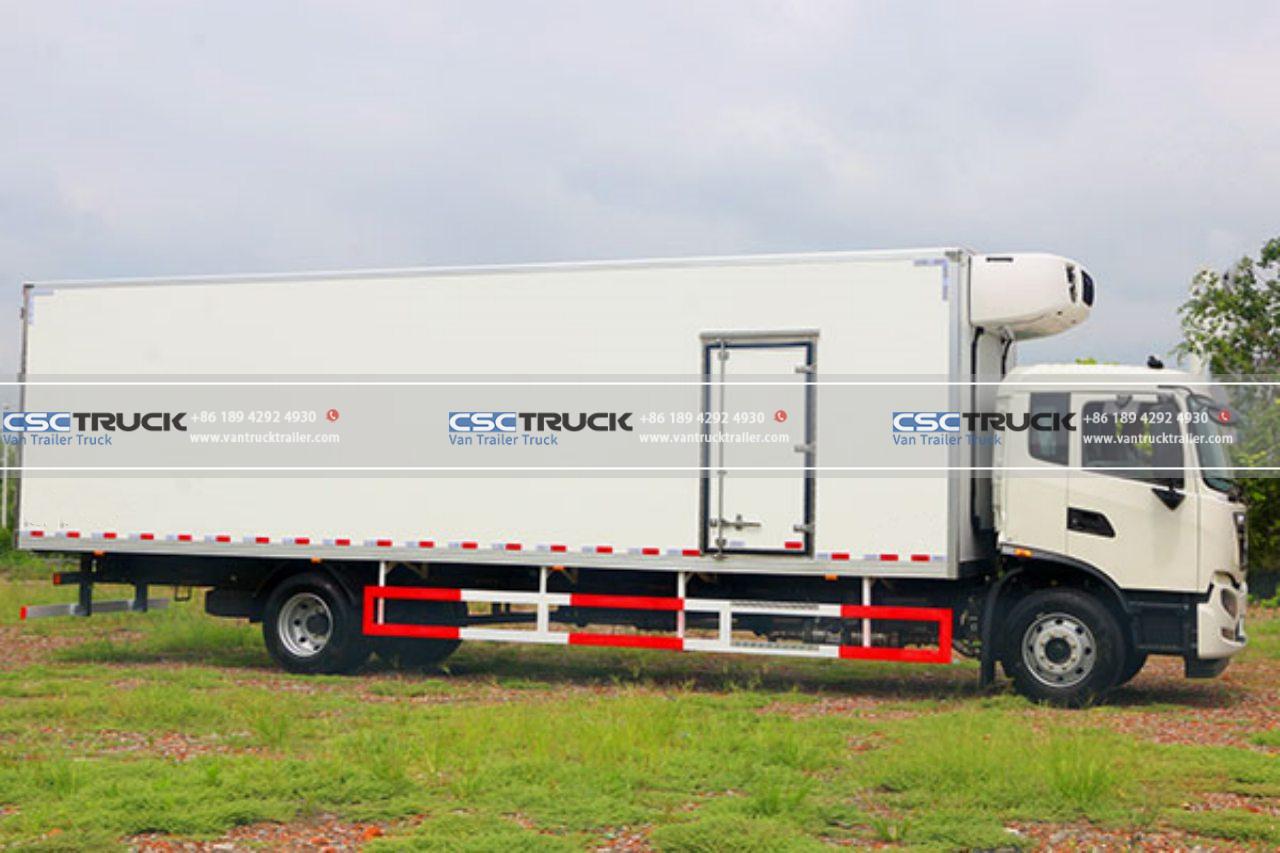
Conclusion
Refrigerated trucks are an essential part of cold chain logistics. By choosing the right refrigerated truck and following the best practices for cold chain logistics, you can help to ensure that your perishable goods arrive at their destination in good condition.
In addition to the factors mentioned above, several other factors can affect the success of your cold chain logistics. These include the following:
- The quality of your cold chain equipment
- The efficiency of your cold chain procedures
- The reliability of your cold chain partners
By taking all of these factors into account, you can help to ensure that your cold chain logistics are successful and that your perishable goods arrive at their destination safely and on time.
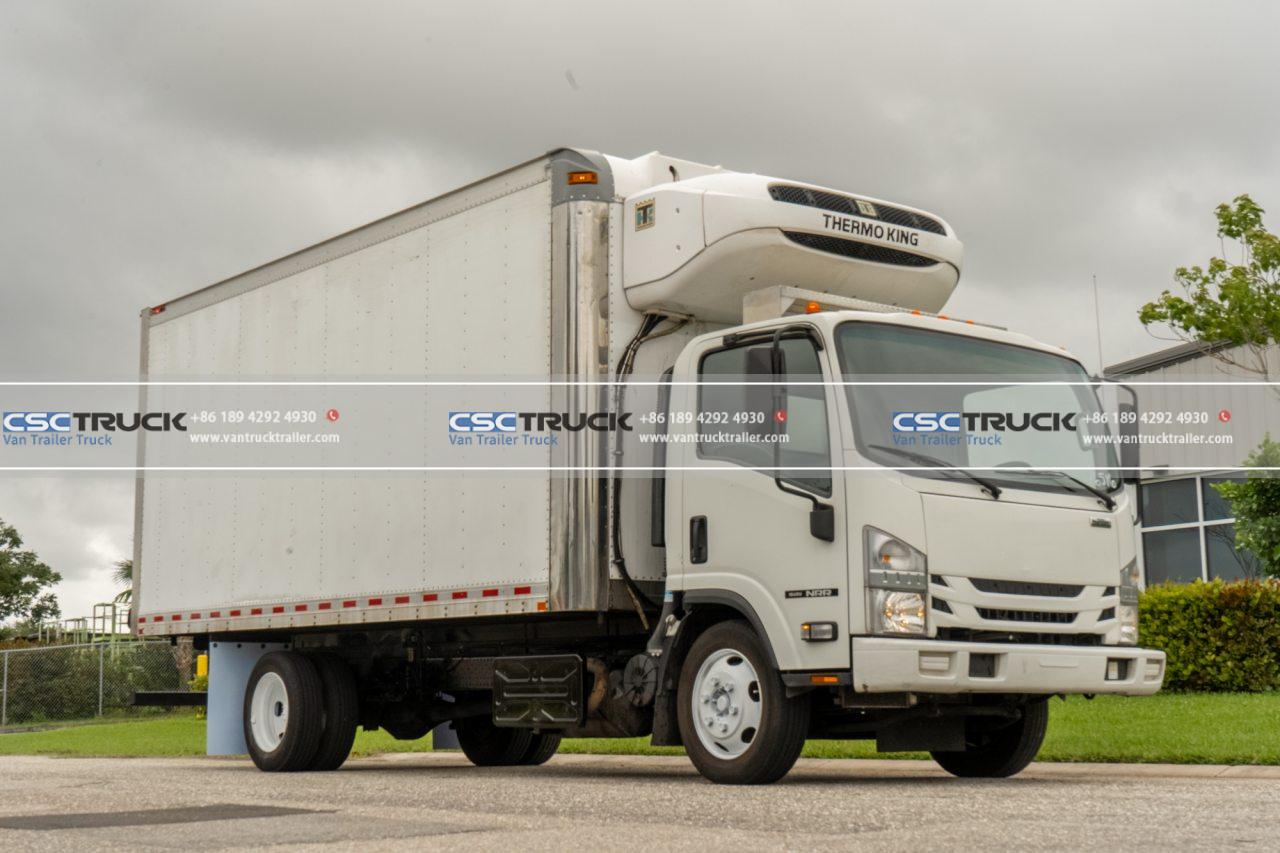
The Future of Refrigerated Trucks
The future of refrigerated trucks is bright. As the demand for perishable goods continues to grow, so too will the demand for refrigerated trucks. In addition, the development of new technologies, such as self-driving trucks and blockchain, is poised to revolutionize the cold chain logistics industry.
One of the most promising technologies for the future of refrigerated trucks is self-driving trucks. Self-driving trucks have the potential to improve the efficiency and safety of cold chain logistics. They can also help to reduce the environmental impact of cold chain logistics by reducing fuel consumption.
Another promising technology for the future of refrigerated trucks is blockchain. Blockchain is a distributed ledger technology that can be used to track the movement of perishable goods throughout the cold chain. This can help to improve the traceability of perishable goods and ensure that they are kept at a safe and consistent temperature.
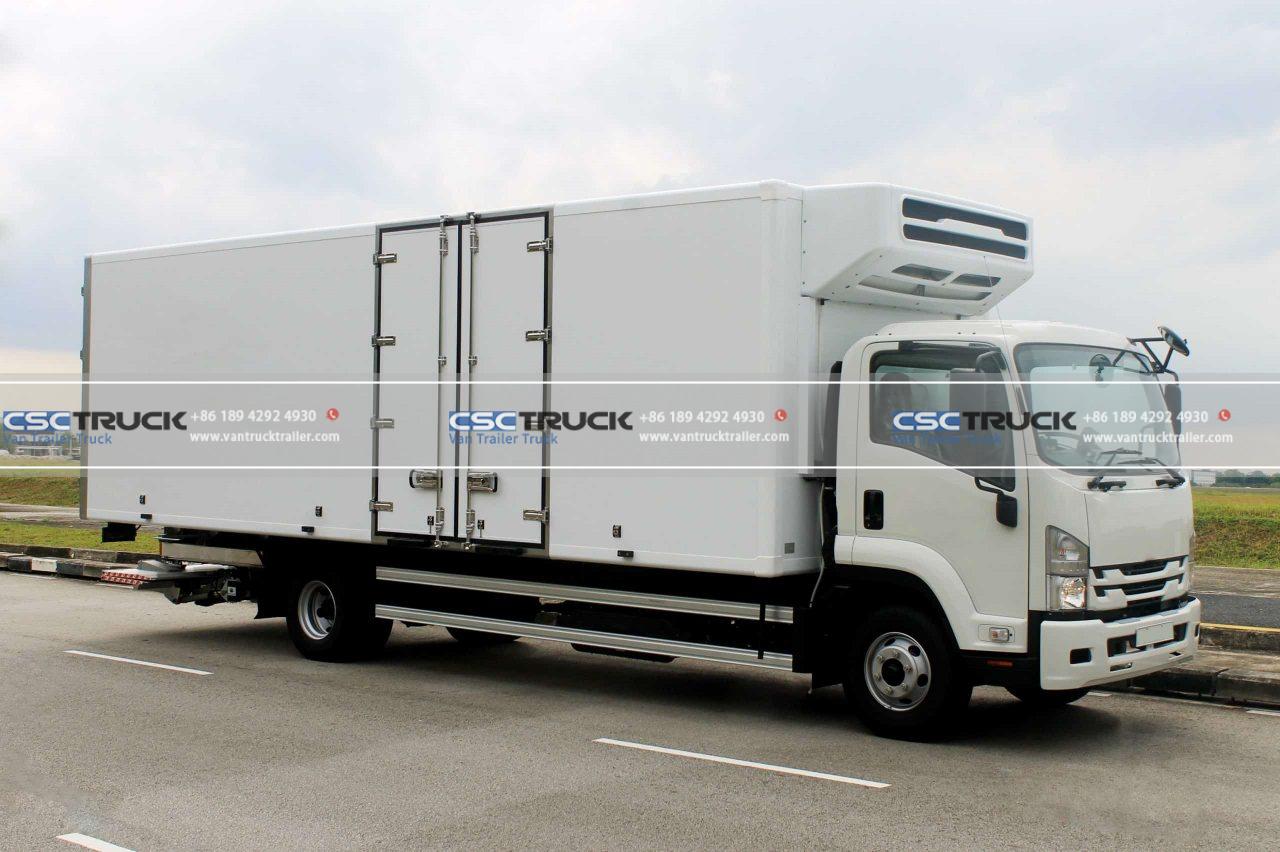
As these technologies continue to develop, the future of refrigerated trucks looks very bright. Refrigerated trucks will play an increasingly important role in the global economy, helping to ensure that perishable goods are kept safe and fresh from the manufacturer to the end consumer.
Here are some additional resources that you may find helpful:
- The Cold Chain Logistics Association: https://www.ccla.org/
- The International Association of Refrigerated Warehouses: https://www.iarc.org/
- The Food and Agriculture Organization of the United Nations: https://www.fao.org/
I hope this article has been helpful. If you have any questions, please feel free to ask.
